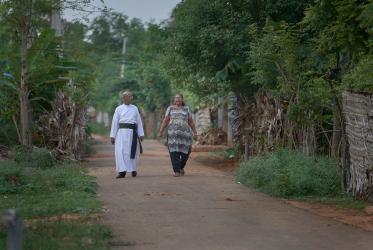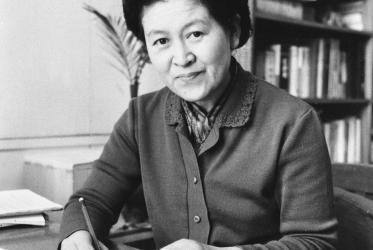Displaying 1 - 20 of 37
Unity is key when health crisis poses new challenges in Asia
28 February 2022
WCC offers prayer during Japanese peace conference
11 March 2021
WCC represented at G20 Interfaith forum in Tokyo
13 June 2019
Peacemakers at work in Sri Lanka
29 April 2019
A tribute to former WCC president for the Asia-Pacific
27 April 2018
G7 must address famine
22 May 2017
GEM school ends with hope for a better tomorrow
08 September 2016
A just financial and economic architecture is possible, students find
08 September 2016
Prayer and hope mark anniversary of atomic bombings
05 August 2016






